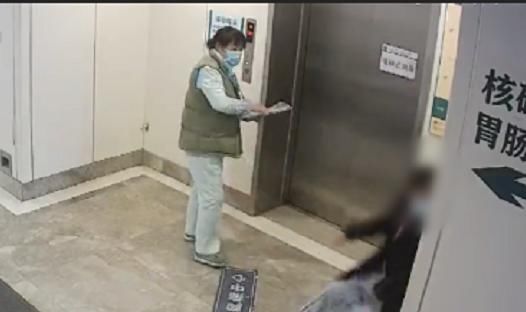“Save people! The patient has fainted!” A rush for help sounded in the corridor on the M floor of the South Campus of Dalian Friendship Hospital. A patient with epilepsy suddenly fell ill at the elevator door. Many medical staff gave timely and proper treatment, and the patient is no longer in serious condition.

On the afternoon of February 23, in the second ward of the General Department of the M floor of the South Campus of Dalian Friendship Hospital. The escort was taking a female patient to the relevant department for examination. At the elevator entrance, the patient suddenly felt unwell, and immediately fell to the ground with convulsions. The escort did not cry for help. The doctor in the ward, Wang Jinan, immediately stepped forward to rescue him. Wang Jinan pressed the patient’s chin with the thumbs of both hands, the other fingers supported the mandible, turned the head to one side, and opened the airway to avoid aspiration and tongue bite. Other doctors and nurses who arrived after hearing the sound also actively cooperated with the rescue. Director Wei Guangyu of the Second Ward of the Endocrinology and Metabolism Department ran to the emergency department to request support, and Head Nurse Chu Yumei stayed in place to cooperate. After dozens of seconds, the emergency medical staff rushed over with an ambulance. It was not until the emergency nurse placed the gauze-wrapped tongue depressor in the patient’s mouth and continued to open the airway that Wang Jinan released his hands holding the patient’s jaw.
When the patient was transferred to the emergency department, his convulsions had gradually improved, and he continued ECG monitoring and oxygen support. It is understood that this patient suffers from sudden epilepsy. Epilepsy is a kind of brain dysfunction that occurs irregularly, irregularly and repeatedly. The greatest risk of the patient comes from various accidents that occur during the sudden attack, such as drowning in water, death and injury in car accidents. , but more of a tongue bite suffocation, fractures caused by strong convulsions. On physical examination, the patient did not have any trauma during the onset. At present, the patient’s body is no longer in trouble, and the relevant departments will also give a more detailed disease rehabilitation plan after consultation.
Peninsula Morning News, 39 Degrees Video Reporter Huang Fengtong